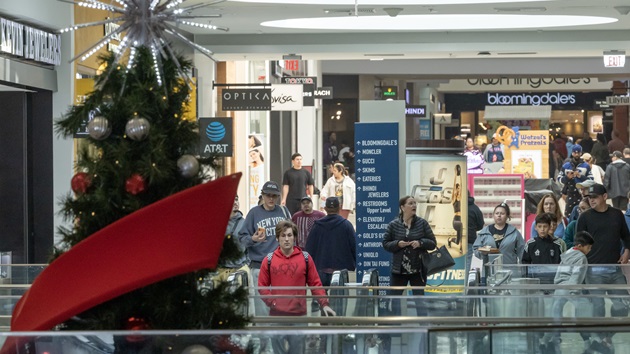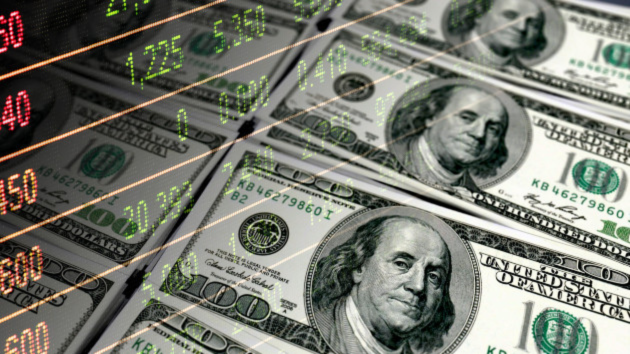Student loan rates set to reach 16-year high: ‘It’s a shock’
Written by ABC Audio ALL RIGHTS RESERVED on May 9, 2024

(NEW YORK) — The borrowing cost for student loans is poised to reach a 16-year high.
The interest rate on a federal undergraduate student loan is expected to climb to 6.5% in July, which would mark its highest level since 2008, financial-aid expert Mark Kantrowitz told ABC News. The current interest rate of a new student loan is 5.5%.
The borrowing rate for student loans is set by adding a fixed amount of 2.05 percentage points to the yield on the 10-year Treasury bond, which is determined annually at a May auction. At the auction on Wednesday, 10-year Treasury bonds were sold at a 4.48% yield.
The yield for 10-year Treasury bonds, in turn, closely tracks the benchmark interest rate set by the Federal Reserve. That benchmark rate remained relatively low for years but has surged since 2022, when the Fed undertook an aggressive series of interest rate hikes to fight inflation. In response to rising interest rates, student loan rates have soared.
“It’s a shock because people had gotten used to low rates,” Kantrowitz said.
Since student loans are typically fixed, the forthcoming rate will apply to new loans but will not affect previous ones. The new rate will apply to loans for the 2024-2025 academic year beginning on July 1.
On a 10-year student loan of $28,000 under the forthcoming rate, the borrower will pay interest of about $10,000, which amounts to a roughly 35% higher cost for the borrower when compared with a student foregoing loans, Nancy Goodman, founder and executive director of higher-education nonprofit College Money Matters, told ABC News.
Under the forthcoming rate, such a borrower would pay an additional $2,000 over the course of the loan when compared with the current rate, Goodman explained.
“That’s a big burden,” Goodman added. “I hate to see that for students.”
In December, the Fed forecasted three quarter-point interest rate cuts over the course of 2024. Due in part to stubborn inflation since then, however, the Fed has recently cast doubt about whether those rate cuts will happen after all.
At a meeting earlier this month, the Fed held interest rates steady at their highest level since 2001.
Because the interest rate for student loans depends on the yield for 10-year Treasury bonds set at an auction in May, the postponement of interest rate cuts locked in high borrowing costs for students for the next academic year.
“Student loans have gotten caught up in the Fed’s attempt to rein in inflation, and the students who are borrowing are going to pay the price,” Goodman said.
The average annual tuition for a four-year, in-state public college stood at $11,260 for the most recent academic year, which amounted to a 2.5% increase before inflation adjustment, the College Board says.
For a private, four-year college, the average annual tuition stood at $41,540 over the most recent academic year, which marked a 4% increase before inflation adjustment, according to the College Board.
The jump in borrowing rates will exacerbate the rising cost of tuition, especially for low- and middle-income students, Kantrowitz said.
“College is becoming less and less affordable every single year,” Kantrowitz added.
Meanwhile, the rate of students pursuing federal loans has plummeted.
During the current academic year, roughly 35% of college students have completed the Free Application for Federal Student Aid, or FAFSA, according to data from the National College Attainment Network. That share of college students completing FAFSA forms marks a decline of 13 percentage points when compared to the previous academic year, the National College Attainment Network found.
The drop in aid applications suggests that many college students are pursuing low-cost options or opting against college altogether, Goodman said.
“Colleges should be a little concerned,” Goodman said. “Students are getting smarter about the cost of borrowing and colleges are having a more challenging time filling their classes.”
“This is hard for everybody,” Goodman added.
Copyright © 2024, ABC Audio. All rights reserved.
 KVSP
KVSP 




